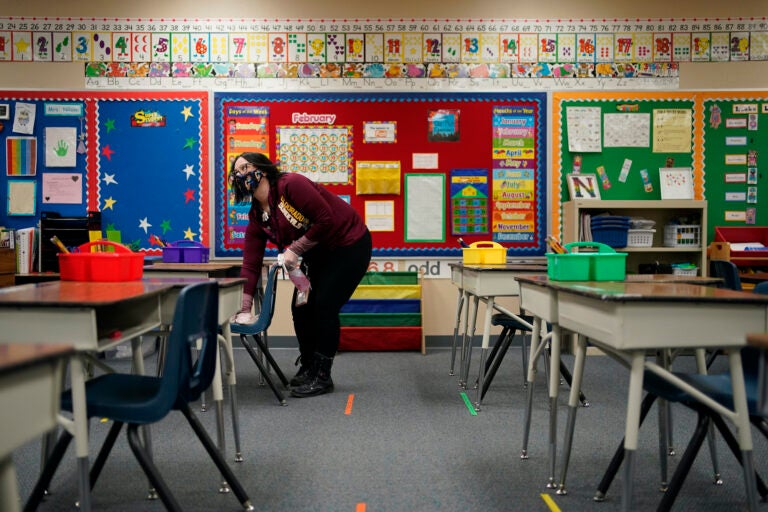Sign Up With Us: Events and Efforts to Save Temecula Schools
Sign Up With Us: Events and Efforts to Save Temecula Schools
Blog Article
Comprehending the Importance of Institutions in Kid Development and Community Development
Schools function as pivotal organizations for child development and neighborhood development, providing environments where academic achievements are complemented by the growing of social skills and direct exposure to varied point of views. These educational settings not just advertise essential thinking and reliable communication but also foster compassion through joint tasks. Institutions' involvement with regional communities via service-learning initiatives enhances the bond between family members and academic institutions. This cooperative relationship emphasizes the significance of schools in supporting active citizenship and long-lasting discovering habits. Nevertheless, what are the details systems through which these institutions attain such extensive impacts?
Academic Success
Academic achievement acts as a keystone of child advancement, offering the foundation upon which future learning and success are built. Institutions play a pivotal function in promoting this academic development, offering organized settings where children can acquire essential expertise and cognitive abilities. Standardized curricula ensure that pupils gain proficiency in core subjects such as maths, scientific research, and language arts, which are crucial for both higher education and specialist opportunities.
Along with giving essential scholastic skills, colleges also grow critical thinking, problem-solving abilities, and intellectual curiosity. These cognitive proficiencies are crucial for navigating complex real-world situations and adapting to the ever-evolving needs of the contemporary office. Educators, as facilitators of learning, employ varied pedagogical methods to satisfy diverse understanding designs, consequently taking full advantage of individual trainee potential.
In addition, academic success is closely connected to self-esteem and motivation. Kids that experience academic achievements are more probable to develop a positive self-concept and a lifelong passion for discovering. Institutions likewise supply numerous sources, such as collections and technology, which better enhance the instructional experience and prepare pupils for a technically advanced society.
Social Ability Development
Beyond scholastic success, the role of schools in social ability advancement is indispensable. Schools act as a key venue for children to find out and exercise vital social abilities such as teamwork, problem, and communication resolution. In the structured setting of a class, trainees interact with peers, educators, and other institution team, providing countless chances to develop these crucial capacities.
Effective social ability development in colleges is facilitated with group tasks, collaborative jobs, and extracurricular programs. These interactions assist students understand social norms, build empathy, and cultivate a feeling of area. For circumstances, team jobs teach students just how to collaborate towards a typical goal, pay attention to different viewpoints, and navigate disagreements constructively.

The growing of social abilities during academic year lays a foundation for future personal and specialist connections. Save Temecula Schools. As trainees develop, the ability to effectively connect and work together comes to be progressively essential, emphasizing the institution's important duty in alternative kid advancement
Direct Exposure to Diversity
Exposure to diversity next page in institutions is basic to promoting an inclusive frame of mind and broadening students' perspectives. Schools work as a microcosm of the more comprehensive society, and coming across varied societies, languages, and socioeconomic backgrounds within this setting outfits students with crucial abilities for navigating a significantly globalized world. This direct exposure encourages compassion, minimizes prejudices, and promotes shared regard amongst peers.
Study suggests that students that interact with peers from varied histories display better problem-solving abilities and creativity. This understanding of variety prepares pupils for future offices that worth multicultural skills - Save Temecula Schools.

Area Engagement
The benefits of varied classrooms expand past the institution walls, fostering a strong sense of neighborhood involvement among students. By interacting with peers from numerous social, socioeconomic, and ethnic histories, pupils obtain a more comprehensive perspective and an admiration for diversity. This direct exposure motivates them to become active people that are eager to add favorably to their areas.
Schools that highlight community engagement usually integrate service-learning jobs, which enable trainees to resolve real-world troubles while applying academic skills. These jobs not just improve pupils' understanding of their coursework but likewise impart a sense of responsibility and empathy. Moreover, partnerships between institutions and regional companies provide pupils with opportunities to participate in community occasions, additionally strengthening their role as aggressive neighborhood participants.
Additionally, adult and community participation in schools strengthens the bond between universities and the areas they serve. When colleges open their doors to neighborhood occasions, workshops, and volunteer chances, they create a collaborative setting that profits all stakeholders. This common support group guarantees that trainees get holistic growth, preparing them to come to be well-rounded people who contribute and value to their neighborhoods. go now Via these initiatives, institutions play a crucial role in nurturing neighborhood involvement and fostering social development.
Lifelong Discovering Habits
Developing long-lasting learning habits is essential for a kid's continuous development and flexibility in an ever-changing world. Institutions play a crucial function in instilling these behaviors by creating a setting that cultivates curiosity, important thinking, and a love for knowledge. With varied educational programs and after-school activities, teachers motivate trainees to explore different topics, analyze info seriously, and apply their learning to real-world circumstances.

Additionally, institutions offer an organized setting where youngsters can develop self-discipline and time administration abilities, both of which are crucial for continuous knowing. By highlighting the relevance of setting goals, reviewing progression, and adapting techniques, universities prepare students to browse the intricacies of adult life, ensuring they stay lifelong learners and contributors to society.
Verdict
In conclusion, schools are crucial in fostering kid advancement and community development by supplying environments helpful to academic accomplishment, social skill development, and direct exposure to variety. Ultimately, schools cultivate lifelong knowing practices, gearing up people advice with the necessary knowledge and skills to add favorably to society.
In the structured environment of a class, pupils interact with peers, instructors, and other institution staff, offering numerous possibilities to establish these vital capacities.
In essence, exposure to diversity within schools not only enriches private pupils but also reinforces the social fabric of the community as a whole.
The benefits of diverse class extend past the college wall surfaces, fostering a strong feeling of neighborhood interaction amongst trainees.Institutions that emphasize area engagement frequently incorporate service-learning tasks, which permit students to resolve real-world problems while using academic skills. Partnerships in between schools and regional companies provide pupils with opportunities to get involved in neighborhood occasions, further solidifying their role as proactive community members.
Report this page